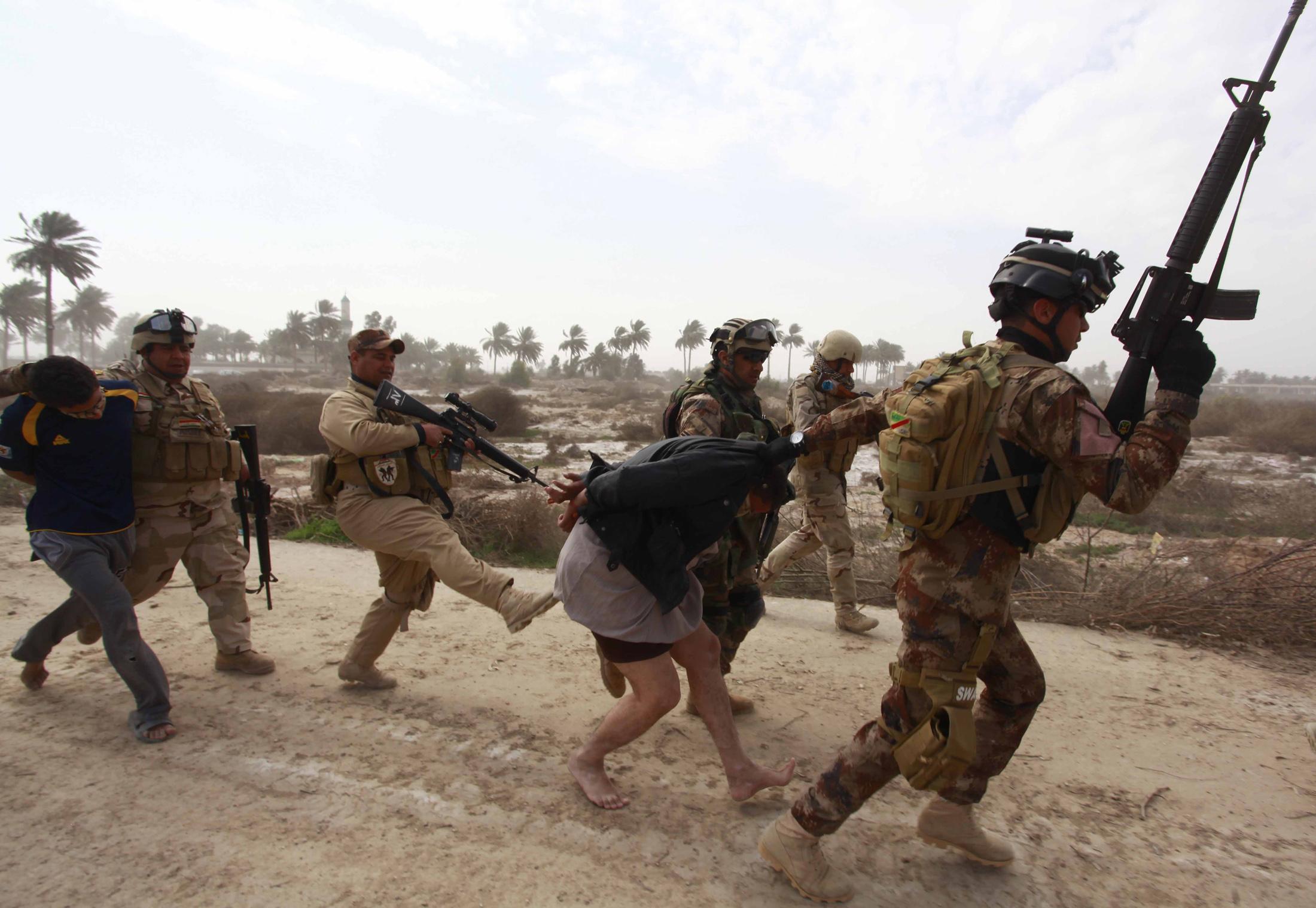US plans to deport American Isis suspect detained in Iraq back to Syria
American Civil Liberties Union warns case could create ‘constitutional black hole’ in which US citizens can be deported to third countries

The US is seeking to forcibly deport an American citizen accused of being a member of Isis from his current detention in Iraq to Syria, court documents have revealed.
A federal court notice filed in the US District court in Washington late on Wednesday noted that the Pentagon plans to return the unidentified “enemy combatant” to Syrian territory, despite his objections, in the next 72 hours.
The unusual case has raised questions over the circumstances in which the US has the right to detain its own citizens abroad, as well as the legality of deporting US nationals to third countries.
The dual US-Saudi national, whose identity is protected, was arrested by US-backed Syrian Democratic Forces (SDF) at a checkpoint in Syria last August before being turned over to US troops.
He has since been detained in US military custody in neighbouring Iraq without charge, and claims he was captured by Isis after travelling to Syria to work as a freelance journalist.
Previous attempts by officials to deport the suspected militant to Saudi Arabia, or transfer him over to the Iraqi authorities, were both blocked by US courts.
In a statement on Wednesday, the American Civil Liberties Union (ACLU) which represents the unnamed man, said that it will ask for the “death warrant” release to be blocked.
Syrian Democratic Forces take Raqqa from Isis – in pictures
Show all 8The Trump administration says that existing laws allow the military discretion over both the transfer and release of people captured in operations outside the US. The ACLU, however, argues that their client should be tried with a crime in a US courtroom, or otherwise released.
Justice Department officials noted in the court filing that there is not sufficient evidence available to charge the man with any crime.
The case risks creating a “constitutional black hole” for US citizens that hold nationality of another country, ACLU lawyer Jonathan Hafetz warned.
“[The administration] wants to dump an American citizen onto the side of the road in a war-torn country without any assurances of protection and no identification,” he said.
“Releasing anyone into Syria is unusual for Western states given that it’s a war zone – a self-evident threat to human rights,” said Kyle Orton, a Syria writer and researcher.
“For the US to release one of its own citizens into Syria is extraordinary, and the natural corollary is that there will be less resistance to doing this with non-Americans in US custody.
“As well as the precedent set from a legal-political standpoint, it is an unusual military tactic to put someone the US has every reason to believe is an enemy combatant back on the field.”
Several other Western countries, including the UK, have moved to strip dual nationals of citizenship or otherwise handed them over to Iraqi and Syrian Kurdish officials for trial.
In April, the two remaining members of the notorious British Isis cell nicknamed “The Beatles“ emphasised their right to a fair trial, from prison in northern Syria.
“l am not a democratic person, but I am being subjected to democratic law. So it is only right for those who claim to uphold this to fully uphold it,” El Shafee Elsheikh said in an interview with CNN.
Human rights groups have frequently pointed out that the judicial process and detention conditions for suspected fighters, including mass trials and suspected torture, fall far below internationally accepted standards.
“Western governments have been reluctant to take captured foreign fighters back, using various legal and logistical means to bar them,” Mr Orton said.
“If this case manages to pass by without too much of a political price, it could well become a more frequently used method of keeping Americans who joined the Islamic State from coming home.”
Subscribe to Independent Premium to bookmark this article
Want to bookmark your favourite articles and stories to read or reference later? Start your Independent Premium subscription today.

Join our commenting forum
Join thought-provoking conversations, follow other Independent readers and see their replies